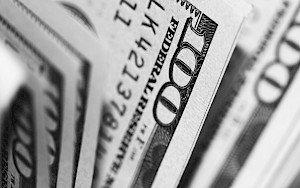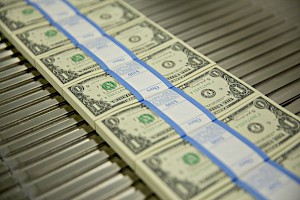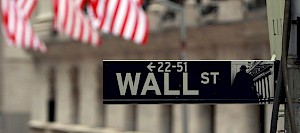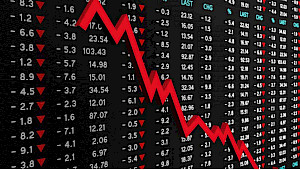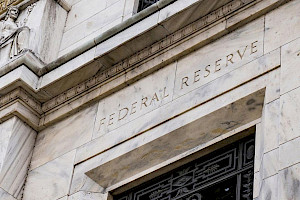The problem with buybacks: Let’s take a closer look at who profits — and who doesn’t — when companies buy their own shares
June 08, 2023Originally published in The Toronto Star on May 30, 2023 as contributing columnist
“When a man tells you that he got rich through hard work, ask him: ‘Whose?‘”
— Don Marquis, American humorist, journalist and author
When famed investor Warren Buffett recently said, “when you are told that all repurchases are harmful to shareholders or to the country, or particularly beneficial to CEOs, you are listening to either an economic illiterate or a silver-tongued demagogue” I thought, I might be tempted to espouse similar views if I too controlled a stock portfolio worth $325-billion — of which $100-billion accrued to me personally.
Buffett is somewhat correct that shareholders benefit from share buybacks. After Berkshire reported $27-billion worth of buybacks in 2021, he went on to say,” The math isn’t complicated: When the share count goes down, your interest in our many businesses goes up.” But I beg to differ on his claim that buybacks are good for the country and not particularly beneficial to CEOs.
Share buybacks are meant to benefit shareholders when a company has excess cash that it believes can’t be properly deployed to grow the business due to the lack of economic opportunity. Rather than sit on idle cash or pay it back to shareholders by way of dividend, it goes into the market and buys up shares of itself and retires those shares, reducing the number of shares, making the remaining shares more valuable.
Buybacks are clearly a more tax-efficient way to return capital to shareholders because the investor doesn’t incur any additional tax on the buyback sale process. Tax is only applicable on the actual sale of shares, whereas dividends attract tax in the range of 15 per cent to 20 per cent. Again, all good news for shareholders.
The downside to share buybacks, however, is how they impact the future health of the economy, especially at the rate buybacks are growing (last year $1.3 trillion was spent on buybacks globally, which is triple the level 10 years ago). Critics argue that buybacks in effect mortgage the future of companies (and by extension, the economy) by underpaying employees, cutting back on research and under investing in capital expenditures sacrificing the future in turn for short-term benefits to a small minority.
By ‘small minority’ I am referring to the fact that the wealthiest 10 per cent of Americans now own 89 per cent of U.S. stocks. Additionally, half the population doesn’t own any stocks whatsoever. The popularity of buybacks within corporate boardrooms is not difficult to appreciate. The bulk of C-suite compensation comes from stock options and other forms of equity-based schemes, i.e. restricted stock units (RSUs) and such.
Issuing shares from treasury to line their pockets and then turning around and using the company’s cash to go into the market and bid the share price higher sounds like a great gig, and it is. Insider stock sales hit records in 2021 as executives unloaded more than $170 billion in stocks. When staff at the U.S. Securities and Exchange Commission (SEC) looked at stock buybacks in 2018, they found that insider selling shot up right after the announcements, allowing executives to profit personally from the share price pop.
Buybacks not beneficial to shareholders — in the long run
It’s no wonder that in America today CEOs make 399 times as much as typical workers and the top 10 per cent of Americans control 70 per cent of the nation’s wealth.
Buffett’s assertion that buybacks are good for the country and not particularly beneficial to CEOs is easy enough to refute. But one can also make a case that they are not even beneficial to shareholders in the long run.
Buybacks have been increasing over the years, but it wasn’t until the pandemic-induced easy money policy that they began to skyrocket, increasing by 80 per cent since 2018. Today, more than half of all stock buybacks are financed by debt! Much of that debt was incurred at the near-zero interest rate environment. With rates exploding from zero to five per cent in one year, that debt will be a lot more expensive to service. Chief executives can cash out their stock and quit, but the shareholders are left with the debt along with its cost.
Recently, governments in both Canada and the U.S. have introduced legislation in an attempt to curb the misuse of buybacks. In its fall economic statement released on Nov. 3, 2022, the Department of Finance announced its intention to implement a two per cent tax on share buybacks, applicable from Jan. 1, 2024.
In the U.S., President Joe Biden’s recently passed Inflation Reduction Act also included a tax on stock buybacks. The U.S. tax will be levied at one per cent starting next year — a concession from the two per cent congressional Democrats initially wanted. A group of legislators is now introducing a bill to increase that tax to four per cent.
In addition to levying taxes, regulators are imposing hurdles to prevent the perceived self-dealing taking place in corporate boardrooms. The SEC created a new rule that will require companies to disclose at the end of each quarter their daily repurchases of stock, why they did it and whether executives bought or sold shares at around the time of the buyback.
Predictably, the U.S. Chamber of Commerce promptly sued, calling the rule an affront to free speech and an attempt to micromanage corporate decisions.
I have said before that America’s current form of capitalism needs a serious overhaul. Don’t get me wrong, I believe in free enterprise and market economies, but what we are seeing today is more like hegemonic corporate socialism than capitalism.
For example, U.S. banks spent more than $100 billion on buybacks in 2021-22. One year later, taxpayers are again bailing them out. No offence to Mr. Buffett, but you don’t need to be an economic expert to realize that something is terribly wrong with the way share buybacks work.



